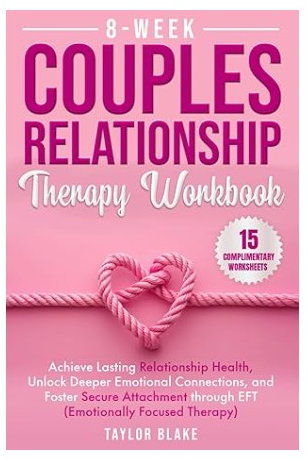The Psychology of Relationships: Understanding Human Connection
Understanding the psychology of relationships helps in building deeper emotional bonds and lasting connections. Discover how psychology influences our interactions and the key mechanisms behind successful human relationships.
RELATIONSHIPSUNDERSTANDINGDATINGUNDERSTANDING HUMAN
2/22/20255 min lesen


The Foundations of Human Connection: Attachment Theory
Attachment theory, pioneered by John Bowlby and Mary Ainsworth, provides a crucial framework for understanding human connections, particularly in the context of relationships. This theory posits that the bonds formed in early childhood between a child and their primary caregiver profoundly influence interpersonal relationships in adulthood. The three primary attachment styles identified are secure, anxious, and avoidant, each characterized by distinct patterns of behavior and emotional responses.
A secure attachment style develops when caregivers provide consistent emotional support and responsiveness. Adults with this style tend to be comfortable with intimacy and trust, facilitating healthier and more stable relationships. They generally exhibit open communication and can manage conflicts effectively, which contributes positively to relationship dynamics.
In contrast, the anxious attachment style often arises from inconsistent caregiving, where the child’s needs are either sometimes met or overlooked. Adults with this attachment style may exhibit clinginess or show a fear of abandonment, leading to heightened anxiety in relationships. These individuals often seek reassurance from their partners yet struggle with trusting their intentions fully, which can lead to tension and misunderstandings.
Finally, the avoidant attachment style is characterized by a reluctance to engage emotionally and a tendency to value independence over intimacy. Children with avoidant tendencies might have caregivers who were emotionally unavailable. As adults, they may fear dependence on their partners, leading to a withdrawal from close relationships and difficulty in expressing emotions. This can create barriers to intimacy, thereby affecting the overall quality of their connections.
Understanding one’s attachment style, as well as that of one’s partner, can be immensely beneficial in fostering healthier relationships. It encourages individuals to become more aware of their emotional responses and attachment behaviors, facilitating open dialogue about needs and expectations that can enhance relational dynamics.
Communication Patterns: The Key to Connection
Effective communication is a cornerstone of successful relationships, significantly influencing how individuals connect with one another. Different communication styles, such as assertive, passive-aggressive, and defensive communication, can profoundly impact interpersonal dynamics. Assertive communication is characterized by clear, direct expressions of thoughts and feelings, which fosters mutual respect and understanding. In contrast, passive-aggressive communication often involves indirect expressions of displeasure, resulting in misunderstandings and unresolved issues. Defensive communication often manifests as a reaction to perceived threats, leading to withdrawal or aggression, which can create emotional distance between individuals.
Enhancing understanding within relationships requires awareness of these communication styles and their effects on interactions. When partners engage in assertive communication, they can articulate their needs without diminishing their partner's feelings. This creates an environment where both individuals feel valued and heard, ultimately strengthening their emotional connection. On the other hand, recognizing and addressing passive-aggressive or defensive tendencies can prevent escalation of conflicts, paving the way for healthier resolutions.
However, common pitfalls in communication, such as assumptions, judgments, or lack of active listening, can hinder effective dialogue. Emphasizing empathy and understanding can mitigate these barriers, contributing to a more harmonious relationship. Active listening, which involves fully concentrating on what the other person is saying, can help partners feel acknowledged and validated. Furthermore, utilizing "I" statements instead of "you" statements can reduce defensiveness and promote constructive discussions about concerns.
Incorporating these strategies fosters healthier communication patterns that enrich relationships and enhance emotional closeness. By developing an awareness of individual communication styles and working towards improving them, couples can cultivate deeper connections and navigate conflicts more effectively. Ultimately, the pathway to lasting human connection lies within the communication choices made daily.
Emotional Intelligence and Relationships
Emotional intelligence (EI) plays a critical role in the fabric of relationships, influencing how individuals perceive, interpret, and respond to their own emotions and those of others. It encompasses several components, including self-awareness, self-regulation, empathy, and social skills, all of which are vital for building and sustaining healthy connections. Self-awareness is the ability to recognize one's emotions and their effects on behavior, which is essential in understanding how personal feelings can impact interactions with others. When individuals cultivate this self-awareness, they can engage in more authentic and meaningful connections.
Self-regulation complements self-awareness, enabling individuals to manage their emotions constructively. This ability to control impulsive feelings and behaviors can prevent conflicts and promote a calmer, more rational approach during disagreements. Hence, individuals who master self-regulation are often better equipped to navigate the ups and downs inherent in any relationship, fostering a supportive environment.
Alongside self-awareness and self-regulation, empathy stands out as a cornerstone of emotional intelligence. This skill involves understanding and sharing the feelings of others, which creates a sense of trust and emotional safety within relationships. Empathetic individuals are more likely to respond to their partners' needs and feelings, which strengthens bonds and fosters better communication. Social skills, the final component, aid in effectively managing relationships, facilitating conflict resolution, and encouraging collaboration.
Incorporating emotional intelligence into daily interactions can significantly enhance relationship satisfaction. Improved communication, mutual understanding, and effective conflict management stem from high emotional intelligence. Consequently, individuals who actively work on developing their EI can anticipate and address challenges more effectively, leading to stronger, more resilient relationships overall.
Fostering Deeper Connections: Practical Strategies
Strengthening relationships often hinges on the daily practices we incorporate into our interactions. One of the most effective strategies for fostering deeper connections is through active listening. This technique involves not just hearing the words spoken but fully engaging with the speaker, demonstrating empathy, and providing feedback that reflects understanding. Practicing active listening can significantly enhance communication dynamics, allowing partners to feel valued and understood. Simple exercises like summarizing what the other person has said or posing thoughtful follow-up questions can help solidify this practice in conversations.
Another vital aspect to consider is the power of vulnerability. Sharing personal thoughts, feelings, and experiences invites closeness and builds trust between individuals. While it may feel intimidating, expressing oneself authentically can pave the way for more profound emotional bonds. To cultivate vulnerability, individuals might start with small disclosures about their day-to-day lives or fears, gradually working toward sharing more significant aspects of their personalities. This process can encourage reciprocity, leading to a more intimate relationship.
Shared experiences play a crucial role in deepening connections as well. Engaging in activities together—whether it is exploring new hobbies, attending events, or simply spending quality time—creates shared memories that strengthen the relational foundation. Consider setting aside time each week for joint activities that both individuals enjoy; this dedicated time fosters companionship and understanding.
Finally, prioritizing quality time is fundamental. In our busy lives, it is easy to let important relationships take a back seat. To counter this, develop routines that prioritize relational investment, such as regular date nights or technology-free meals together. These moments reinforce bonds and allow individuals to reconnect on a personal level, enhancing overall relationship satisfaction.






